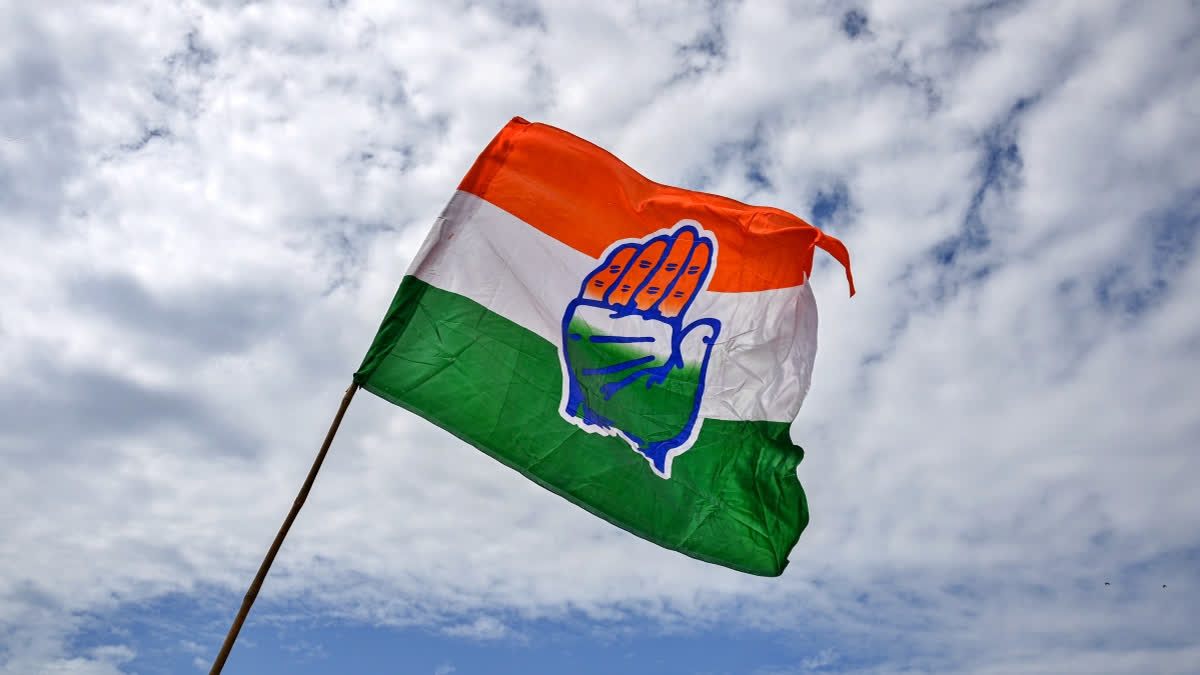Hyderabad:The formation of the Indian National Congress (INC) in 1885 marked a remarkable moment in India's political realm, with Allan Octavian Hume, a retired British Indian Civil Service officer, laying the foundation for a platform leading to civil and political discourse among educated Indians. The grand old party will observe its 138th Foundation Day on December 28, 2023.
Policy and structure:The INC, run by a hierarchical structure, annually convenes a national conference attended by delegates across states. This conference plays a crucial role in electing the party president and the All India Congress Committee (AICC) office-bearers.
However, the Congress Working Committee (CWC), consisting of 20 members, predominantly appointed by the party president, holds significant power. The party further organises itself into committees and sections, encompassing youth and women's groups, while also publishing the National Herald newspaper.
Despite a decline in fortunes, as evidenced by a drop in membership from nearly 40 million in the mid-1990s to under 20 million in the early 21st century, the Congress party remains a key player in Indian politics.
History:The Congress party held socialist economic policies within a mixed economy framework initially. However, there was a significant shift in the 1990s when the party endorsed market reforms, including privatisation and economic deregulation. The party has always boasted of their commitment to secular policies advocating equal rights for all citizens, irrespective of caste.
During the Cold War, the Congress party led a foreign policy of nonalignment, focusing on ties with both the West and the Communist nations. However, the Congress-led government later formed a friendship treaty with the Soviet Union in 1971 due to American support for Pakistan.
Significance:The significance of INC in the country's history cannot be overstated. The party acted as the sole representative body for Indians after its establishment in 1885, passing resolutions that addressed humble demands such as civil rights and policies. The Congress dominated all three stages of the 'official' history of the Indian freedom struggle.
Pre-Gandhian phase:The pre-Gandhian phase witnessed the Congress playing a crucial role. The Gandhian period, linked with Pandit Jawaharlal Nehru's fortunes, showed the impact of Mahatma Gandhi's ideologies. The frequent European vacations by Jawaharlal Nehru in the pre-independence era also were significant, involving the cultivation of ties with Communists in Europe and the erstwhile USSR.
Formation of INC:The formation of the party in 1885 aimed at involving more Indians in the governance of the country initially. The party started with 72 delegates from various Indian provinces, including prominent figures like Dadabhai Naoroji and Womesh Chandra Bonnerjee. The INC evolved from a moderate organisation advocating constitutional methods to a radical force by 1905. The 1905 partition of Bengal marked a turning point, transforming the Congress into a mass movement.
Mahatma Gandhi:The arrival of Mahatma Gandhi in 1915 further boosted the Congress, introducing campaigns like 'Satyagraha' and civil disobedience to the independence struggle. Mahatma Gandhi's spiritual leadership attracted support from both the elite and the masses, with leaders like Jawaharlal Nehru, Sardar Vallabhbhai Patel, and Subhash Chandra Bose emerging. Despite a split in the party in the Surat session in 1907, the Congress became a dominant political force during the Indian freedom struggle. Muhammad Ali Jinnah was also a member of the party and although he joined the Muslim League in 1913, he continued to be a Congress member as well until 1920.
Post-independence:The Congress party produced prominent leaders, including Jawaharlal Nehru, Lal Bahadur Shastri, Indira Gandhi, Rajiv Gandhi, PV Narasimha Rao, and Manmohan Singh. Indira Gandhi's son Rajiv Gandhi took over from her and became the youngest Prime Minister of India from 1984-89. In mid-1987, the Bofors scandal damaged his corruption-free image and resulted in a major defeat for his party in the 1989 election. He was assassinated in 1991 by a suicide bomber from the Liberation Tigers of Tamil Eelam (LTTE).
Sonia Gandhi, Rajiv Gandhi's wife, became the longest-serving president of the party, leading from 1998 to 2017. Rajiv and Sonia Gandhi's son Rahul Gandhi assumed the presidency from December 2017 to July 2019, succeeded by incumbent Mallikarjun Kharge, who defeated Shashi Tharoor to become the first Dalit to hold the position.
Congress in 2023: The grand old party has certainly lost its major plot in India post-2014, courtesy of the Bharatiya Janata Party (BJP) and the wave of Prime Minister Narendra Modi. The Congress is currently ruling in only three states - Telangana, Himachal Pradesh and Karnataka. The party, which has given six Prime Ministers to the country - Jawaharlal Nehru, Lal Bahadur Shastri, Indira Gandhi, Rajiv Gandhi, PV Narasimha Rao and Manmohan Singh, will have to work hard to regain its influence on the Indian soil.
